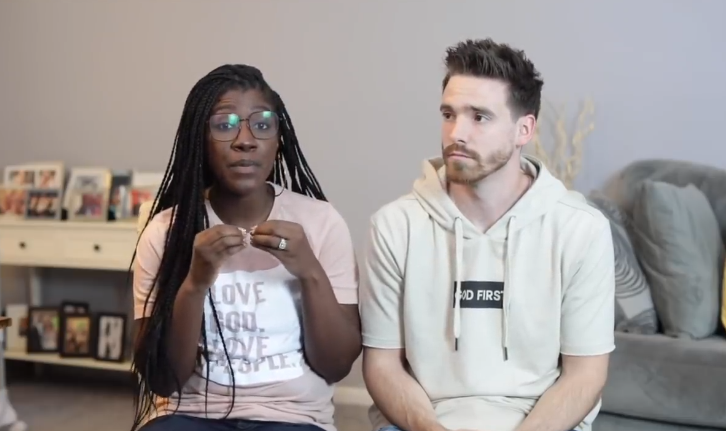
In today’s world, political differences can create tension in relationships, families, workplaces, and friendships. With deeply held beliefs and emotional investments in political ideologies, it is easy for discussions to turn into heated debates or even full-blown arguments. However, learning to navigate these differences with respect, open-mindedness, and understanding can strengthen relationships rather than weaken them. In this article, we will explore how to handle political differences effectively and foster healthy conversations.

Understanding the Root of Political Differences
Before engaging in discussions about politics, it is essential to understand why people have different political beliefs. Various factors contribute to one’s political stance, including:
- Upbringing and Environment: The culture and family values a person grows up with play a significant role in shaping their political beliefs.
- Education and Personal Experiences: Exposure to different viewpoints through education, travel, and life experiences can influence political perspectives.
- Media Consumption: The sources people turn to for news and information can reinforce certain political views and biases.
- Personal Values and Morality: People often align with political ideologies that resonate with their core values and sense of right and wrong.
Understanding these influences helps foster empathy and patience in political discussions, allowing people to appreciate why others may think differently.

Effective Communication Strategies for Political Discussions
Navigating political differences requires healthy communication strategies that promote constructive dialogue rather than conflict. Here are some effective approaches:
1. Listen Actively
Many political discussions escalate because individuals are more focused on proving their point than truly listening. Active listening involves:
- Paying full attention without interrupting.
- Asking clarifying questions to understand the other person’s perspective.
- Reflecting on what is being said before responding.
2. Avoid Personal Attacks
It is important to separate political beliefs from personal identity. Disagreements should not turn into attacks on someone’s character. Instead of saying, “You’re wrong and ignorant,” try saying, “I see things differently because…” This approach keeps the discussion respectful and open-minded.
3. Find Common Ground
Even when political views seem vastly different, there are often shared values or concerns. Identifying areas of agreement can help make conversations more productive. For example, both parties might care about improving education or economic stability, even if they have different ideas on how to achieve it.
4. Set Boundaries When Needed
If discussions become too heated or unproductive, setting boundaries is a healthy approach. Some people choose to avoid political discussions altogether in certain settings, such as family gatherings or the workplace, to maintain peace and positive relationships.
5. Be Open to Changing Perspectives
Many people enter political discussions with the mindset of convincing the other person to change their view. Instead, approach discussions with curiosity and openness. Be willing to acknowledge valid points from the other side and refine your own understanding.

Handling Political Differences in Relationships
Romantic relationships can face challenges when partners have opposing political beliefs. Here are some ways to manage these differences successfully:
- Respect Each Other’s Views: Instead of trying to change your partner, focus on understanding their perspective and respecting their right to their beliefs.
- Emphasize Shared Values: Focusing on mutual goals, such as building a strong partnership or raising a family, can help minimize political tensions.
- Agree to Disagree: Sometimes, the best solution is to acknowledge differences and move forward without trying to win an argument.
- Practice Compromise: When political beliefs influence important life decisions, such as voting or raising children, finding a middle ground can help both partners feel heard and valued.

Navigating Political Differences in Friendships
Friendships can also be tested by political disagreements. Here’s how to maintain strong friendships despite differing views:
- Focus on What Connects You: Friendships are built on shared experiences, laughter, and mutual support. Political disagreements do not have to define the relationship.
- Engage in Respectful Conversations: If discussing politics, ensure that both parties are comfortable with the conversation and that it remains civil.
- Know When to Walk Away: If a friendship becomes toxic due to political clashes, it is okay to take a step back or limit discussions about politics.

Political Differences in the Workplace
The workplace should be a professional environment where people feel comfortable and respected. Here’s how to handle political differences at work:
- Keep Discussions Professional: Avoid engaging in divisive political debates that could create workplace tension.
- Respect Company Policies: Some workplaces have guidelines regarding political discussions to maintain a neutral and inclusive environment.
- Stay Respectful and Inclusive: Regardless of political beliefs, treating colleagues with kindness and professionalism ensures a positive work culture.
The Role of Social Media in Political Discourse
Social media platforms have become a battleground for political debates. Here’s how to handle political differences online:
- Avoid Engaging in Toxic Arguments: Online debates can quickly turn hostile. If a conversation becomes unproductive, it’s best to disengage.
- Fact-Check Information: Misinformation spreads easily on social media. Before sharing or debating political content, verify sources to ensure accuracy.
- Respect Different Opinions: Just as in face-to-face conversations, it’s important to be respectful and mindful of different perspectives online.

Conclusion: Embracing Diversity in Thought
Political differences do not have to be a source of division. By fostering open-mindedness, respectful communication, and understanding, individuals can navigate political discussions without damaging relationships. At the end of the day, embracing diverse perspectives helps create a more tolerant and informed society. Instead of seeing political differences as obstacles, we can view them as opportunities for growth, learning, and meaningful conversations.


